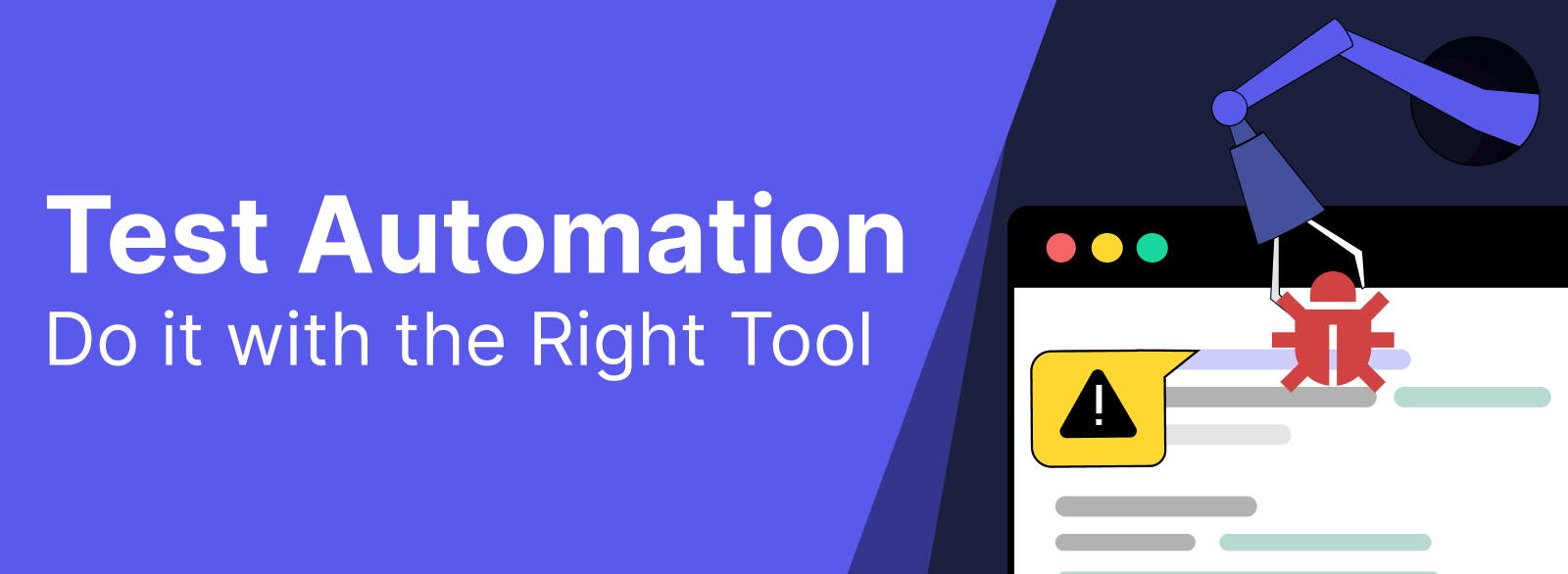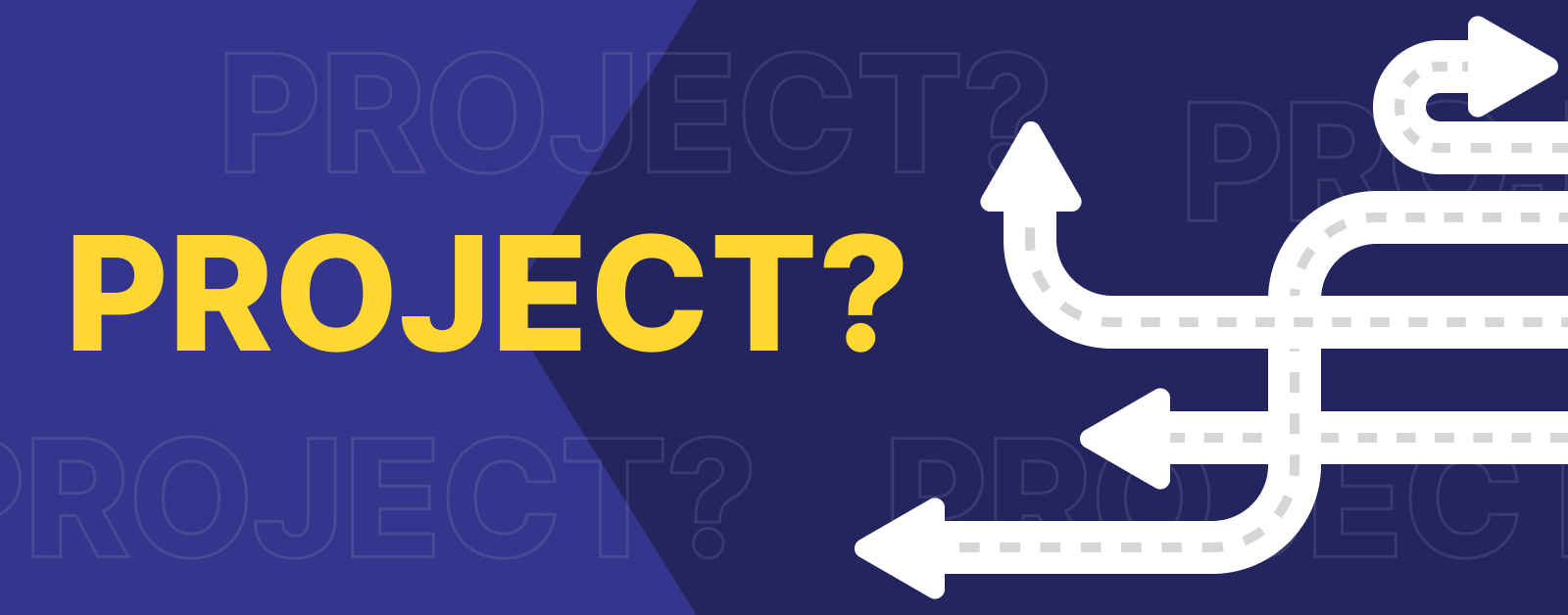A Structured Approach To Select The Right Automated Testing Tool

Depending on your projects and your QA team’s nature, your choice of automation testing tool must be compatible with many different aspects, such as project scope and requirements, in addition to its reputation. The best tool available does not guarantee the best testing outcome. It must be the right one.
Here's a structured approach to help you find that tool.
The Significance of Test Automation
A lot of controversy about whether manual testing has fallen behind as automation testing has risen in popularity. Regardless of contrary opinions, the importance of test automation nowadays is no doubt undeniable.
The software market now demands “Quality at Speed” from industry players. As the name implies, “Quality at Speed” means higher quality products must reach end-users but in a shorter time span than before. This difficult demand fueled test automation’s impressive growth and turned it into a game-changer by allowing QA teams to execute faster and more accurate test cases.
Test types that require repetitive actions, like regression testing, are what needed to be automated the most. Frequent changes in software will significantly escalate the total cost in terms of time and human resources used to run tests manually. Therefore, automating tests is the smarter and more efficient choice in such cases.
Choose the Right Automation Tool, Not the Best One

Regardless of these advantages, test automation does not work the same for all projects. While many QA teams have benefited from automation, other companies have wasted time, efforts, and financial resources in implementing automation tools.
Automation testing success primarily lies in identifying the right tool for different needs and demands. This process takes time and effort at first, but it is a must for your team to automate tests efficiently in the long run.
Types of Automation Testing Tools
All available test automation tools can be divided into three types in general as below.
- Open-source automation tools
These tools are free platforms that allow users to access and use their source code. Users can opt to fully adopt the code or modify it to suit their testing needs. This type of tool is free of charge and developed by the community. Open-source tools are the top choice for many automation testers with a programming background due to their free access and the ability to customize advanced test cases. - Commercial automation tools
Commercial tools are produced to serve commercial purposes and are usually distributed via subscription plans. Users must purchase a paid license to use the software. Compared with open-source software, this kind of tool usually has more premium features and thorough customer service that completes the whole testing process for companies or enterprises. - Custom framework
There are niche projects that a single open-source software or fixed commercial testing tool that cannot fulfill the requirements. They are mainly due to differences in their testing processes and testing environments. In such cases, teams need to develop customized software on their own. The custom framework is much more complicated than the two other solutions and can be deployed by technical experts.
How to Select the Right Automation Tool for Your Project?

Get to know your needs and testing demands first
Before proceeding with the tool selection process, considering whether Test Automation is the right direction for your team at the moment is critical. Not all QA teams need automation to accelerate their testing process. Manual testing still plays an essential part in this field for specific needs and project requirements.
So when is Test Automation necessary?
- When there are many repetitive test cases to be done
- When there are frequent regression tests
- When the team has to simulate a vast number of users for performance testing
- When the UI is apparently stable
- When critical functionalities cannot solely rely on manual testing
These are among the most demanding requirements for the application of test automation. QA practitioners need a deep understanding of their projects to accurately identify them.
Criteria for Automation Testing Tool Evaluation
- Does your team possess the necessary skills to best utilize the tool?
Automation testing is much more technical than manual testing. In many automation tools, especially open-source software, testers must possess a sufficient level of programming knowledge to write and execute test scripts. This technical barrier appears to be the most challenging obstacle in adopting test automation for QA teams with limited IT background.
Testing tools requiring no coding in execution have proven to be a promising solution to this bottleneck. You can find out more about top codeless automation testing tools for 2024 here. - What is your team budget?
Here’s a fact: Test automation is not affordable in many cases. However, it brings out a positive ROI for your team and business in the long run as long as the budget is calculated thoroughly. Depending on the budget, it will be easier for you to pick the appropriate software, an open-source or commercial tool. We will talk about these types of tools further in the following part of this article. - What features to look for?
While the requirements vary from team to team, there are some key factors that you should always take in consideration when choosing a suitable automation tool. They include:- Supported platforms
- Applied application under tests
- Programming languages
- CI/CD integration capabilities
- Reporting functionality
- How difficult is script maintenance and reusability?
A significant factor that escalates the total cost for test automation is script maintenance. Pre-written scripts in automation testing are fragile by nature. The ideal automation tool should come with capabilities to reduce such effort, such as eliminating object locator flakiness. On the other hand, script reusability saves you and the team a great deal of time for similar test cases as you can reuse test scripts. - What are the integration capabilities?
The selected automation tool must be able to integrate into CI/CD pipelines and external platforms to ensure testing continuity. Robust and comprehensive integration also allows you to better your test management and team collaboration. - How and where can you get technical support?
Another key point to be noticed is the support for your tool. For commercial tools, they should provide users with prompt customer support for all technical issues. Remember to check out their official documentation and website to see what means of support you can get. In terms of open-source software, a large and active user community is what you can lay on whenever encountering problems.
Top Suggestions for Test Automation Tools

For your reference, we gathered here the list of some trusted automation tools that fulfill all of the criteria above, including both open-source and commercial ones.
1. Katalon

Katalon Studio is an all-in-one automation tool with both free and paid versions. The tool can be used to automate Web, API, Mobile, and Desktop applications testing— with smart analytics and CI/CD integrations. Katalon Studio is built on top of Selenium framework and inherits some of the most outstanding features.
Katalon offers up to 3 test authoring modes:
- Record-and-Playback which records all on-screen actions and turns them into an automated test scripts that can be reused across environments. Test objects captured during this process is also stored for future test authoring.
- Keyword-driven testing which offers hundreds of keywords that you can choose from and customize its parameters to compose a full script.
- Full scripting for testers who want flexibility and customizability. Of course, you can switch back to the other 2 modes and enjoy the best of both worlds.
Here's a sneek peak of Katalon in action:
Start Automation Testing with Katalon Studio
2. Selenium

Selenium is an open-source framework to perform web testing across browsers and platforms. The tool is widely used and modified by developers and testers worldwide, which means you can easily find support from the community via its official website and forums. Selenium has become the standard framework for many other tools to be built on top of it.
3. SoapUI

SoapUI is an open-source web service testing application for Simple Object Access Protocol and representational state transfers. Its functionality covers web service inspection, invoking, development, simulation and mocking, functional testing, load testing, and compliance testing.
4. JMeter

As a part of the Apache Software Foundation, JMeter is an open-source Java web testing platform. JMeter is primarily used for functional and performance tests thanks to its stimulation mechanism, making extensive scale tests feasible.
For more detailed reviews on automation tools, you can refer to these articles
- Top API Testing Tools for 2024
- Top 10 Mobile Testing Tools for 2024
- Software Testing Tools - Quality Apps, Quality Digital Experiences
- Top 8 Automated Functional Testing Tools
Conclusion
The process of evaluating and selecting automation tools is challenging but rewarding. Once you get the right tool, you will be able to utilize test automation and get the best results with the least resources needed.

